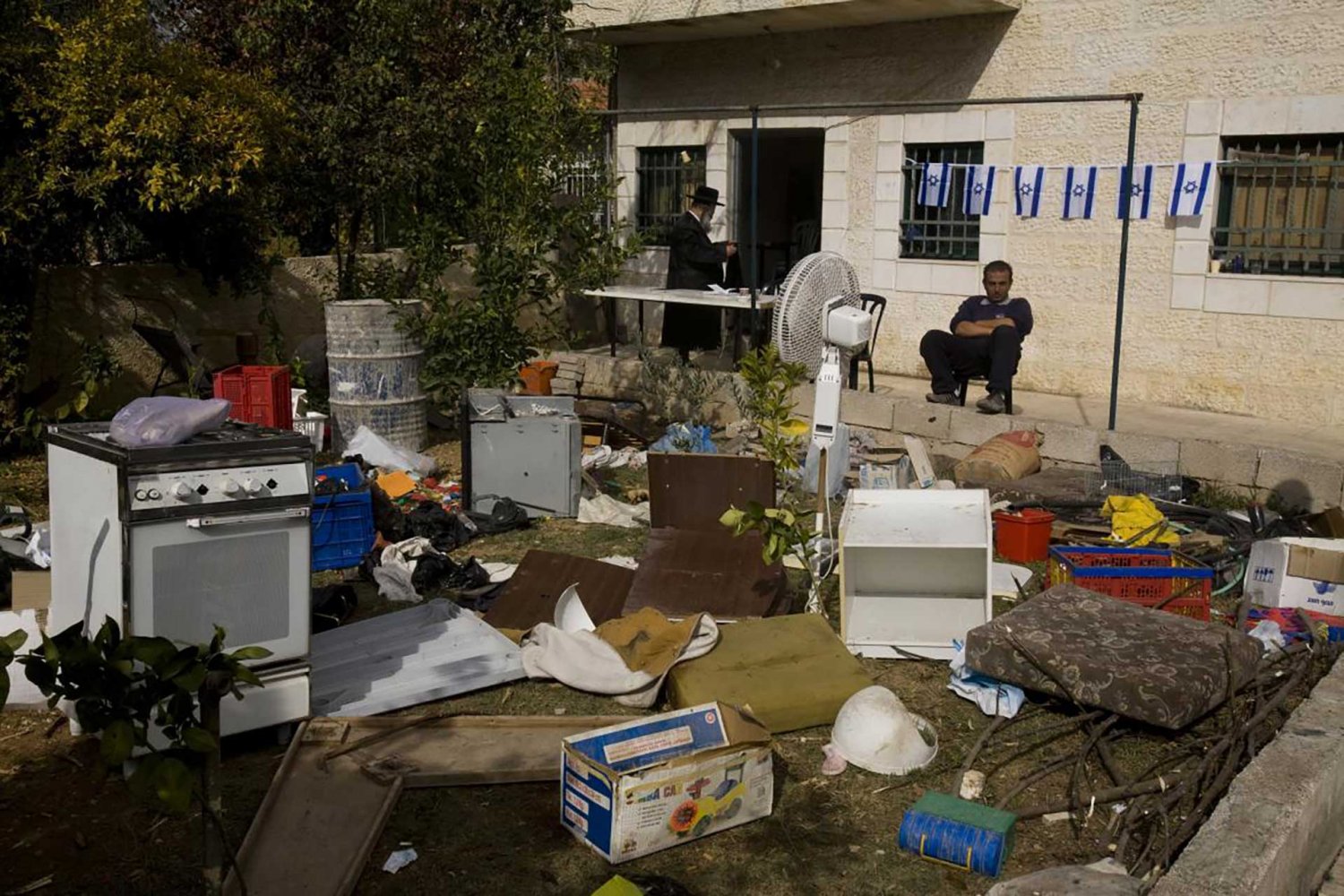Amal, 24, was born and has lived all their life in the Sheikh Jarrah neighborhood of East Jerusalem.1 They identify as queer and use they/them/their as their pronouns. “I am always at home,” said Amal. They leave only to go to work and then return home immediately, and they rarely leave until the next day. “My knowledge of the law is minimal. I know that we will eventually be expelled from our homes, but I can’t say that I am interested in knowing more about the legal labyrinth that Israel uses to expel us,” said Amal.
Amal recalls learning about the Israeli plan to expel their family and the residents of Sheikh Jarrah from their homes when the Hanun and Ghawi families were expelled from theirs in 2009. “I knew then that we would eventually face the same fate,” Amal said. “When my family told me that the Israeli occupation court will make the final decision in May 2021 and that we would probably be expelled, I wasn’t surprised; I saw it coming sooner or later.”
Amal was only 12 when the two neighboring families were expelled, but they recall that day like it was yesterday. “It was a sad day,” they begin. “The Israeli occupation imposed a curfew to prevent Palestinians from helping the families. Together with the other kids, I jumped across rooftops to look for a way to help. To empty the homes quickly, the Israeli military threw the families’ furniture through the windows; Israeli settlers moved their own furniture in at about the same time. It was sad how Palestinians were kicked out to the street, and their homes were given to settlers who had no right to be there.”


